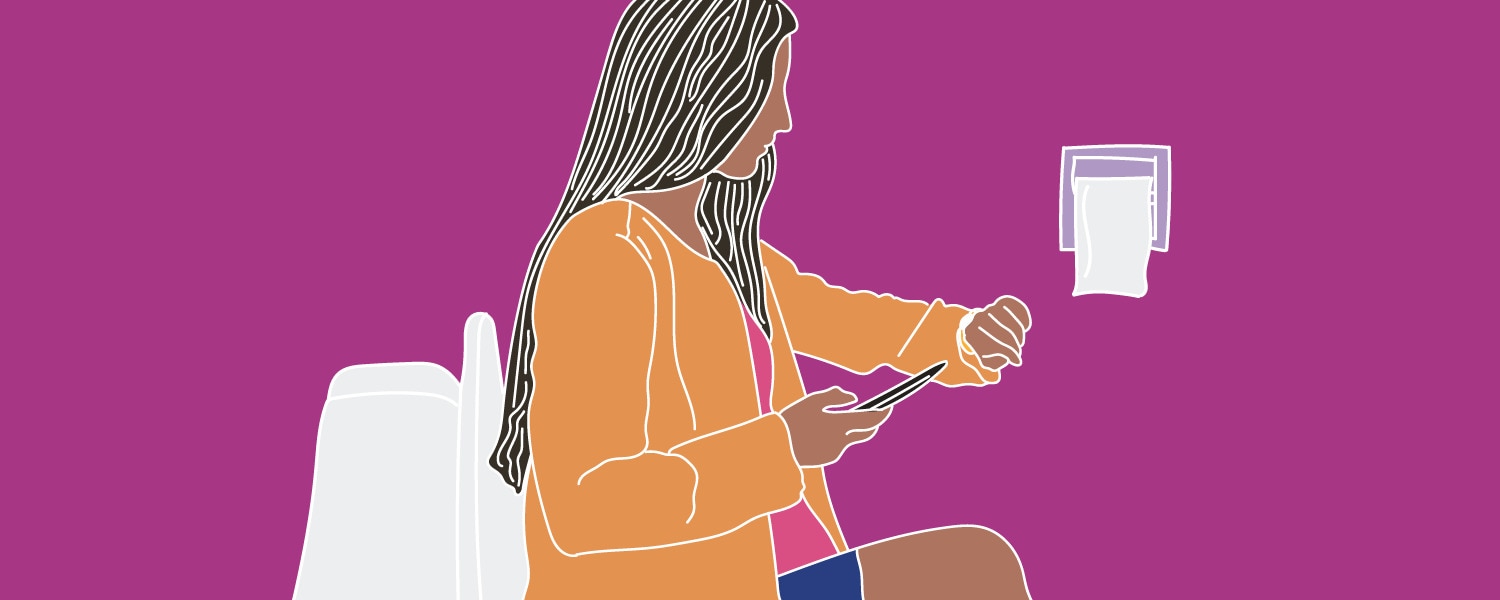Signs of your period coming

There can be nothing more frustrating than waiting for your period to come. Predicting just when you’ll be reaching for a sanitary pad and some paracetamol can be tricky.
Whether you’re waiting for your first-ever period, or are a seasoned pro wondering when yours is coming up, there are some tell-tale signs to look out for that indicate time’s nearly up on waiting for your period to arrive.
When will I start my period?
When it comes to having your first period, every person is different. Most people start between the ages of 11 and 14, however it’s not unheard of to start as young as 8, or as old as 16. One way to get a loose estimate is to ask your mum or a close female relative when they had their first period. They’ll be able to give you some help and guidance, and also answer any questions you might have. Try not to put too much pressure on yourself – as your period will eventually come! The best thing you can do is be patient and let your body develop at its natural rate.
While it’s impossible to predict exactly when it will happen, there are some signs your body may be nearly ready to start…
How do I prepare for my first period?
Starting periods is just one aspect of going through puberty. Other indicators like your breasts starting to develop, hair growing in places it didn’t before (like under your arms or around your vulva), and getting vaginal discharge are all signs that your period might be about to make an appearance! For more information, read our guide about what physical changes you might expect to take place during puberty.
There is no way to know exactly when your first period will come, but you can prepare for when it does! If you’ve experienced some of the above signs, your period may soon start, so you may want to keep some pads in your school bag and a spare pair of underwear close just in case. But it’s important to remember that it’s absolutely normal to be caught off guard and get some period stains, whether it’s your first period or your hundredth! It’s also understandable how a stain may make you feel uncomfortable, but it happens to us all.
When is my period due?
Before your period starts, the hormone levels in your body fluctuate causing physical and emotional changes. This is known as PMS. You might notice certain physical indicators like feeling bloated, your skin breaking out, your hair appearing greasy or your boobs feeling tender to touch. Some women see a difference in their emotions, such as experiencing intense mood swings or feeling irritable, which are all signs that their period may be about to start.
Sometimes it can be useful to write down your pre-menstrual symptoms so you can recognise your body’s signs and spot patterns throughout the different stages of your menstrual cycle. You can also use a period tracker to more accurately predict when your period is due.
Although the signs your period is coming can tell you a lot, it is far from an exact science! There is no definite way to work out when you will start your period and worrying about it won’t make it come any quicker. Stay calm, do something to take your mind off it, and make sure you’re stocked up on sanitary products just in case.
Not knowing exactly when your period is going to come can sometimes be challenging and make it harder to plan for the days ahead. But when you feel like this, remind yourself of just how amazing your body is at keeping itself in shape, even if you do feel like it’s taking eternity for your period to arrive.
For parents: What are some signs that your daughter is about to start her period?
A little before the age where your daughter could possibly start puberty is a good time to start broaching the subject with her. You may notice some early signs that your daughter is about to start her period, like her asking to start wearing bras, or asking about underarm hair.
In the build-up to your daughter starting her period, she will be experiencing both mental and physical changes and will undoubtedly need to rely on a parental figure for support. You may feel a little nervous about helping her to feel prepared with all the facts and the right products. So, what can a parent do to help their child with starting her period?
First of all, it’s important to open up a dialogue with your daughter about periods and/or puberty early on, so that when the time comes, she’s comfortable approaching the topic. When discussing periods with your daughter, it can help to keep a light yet informative tone and dispel the fears that starting your period is something shameful or abnormal, when it’s just a natural part of growing up! Providing your daughter with practical knowledge will help her when she starts her period such as debunking scary period myths along with which period products to buy.
If you’re a parent or a teenager, you can read more in our guide on Puberty.


